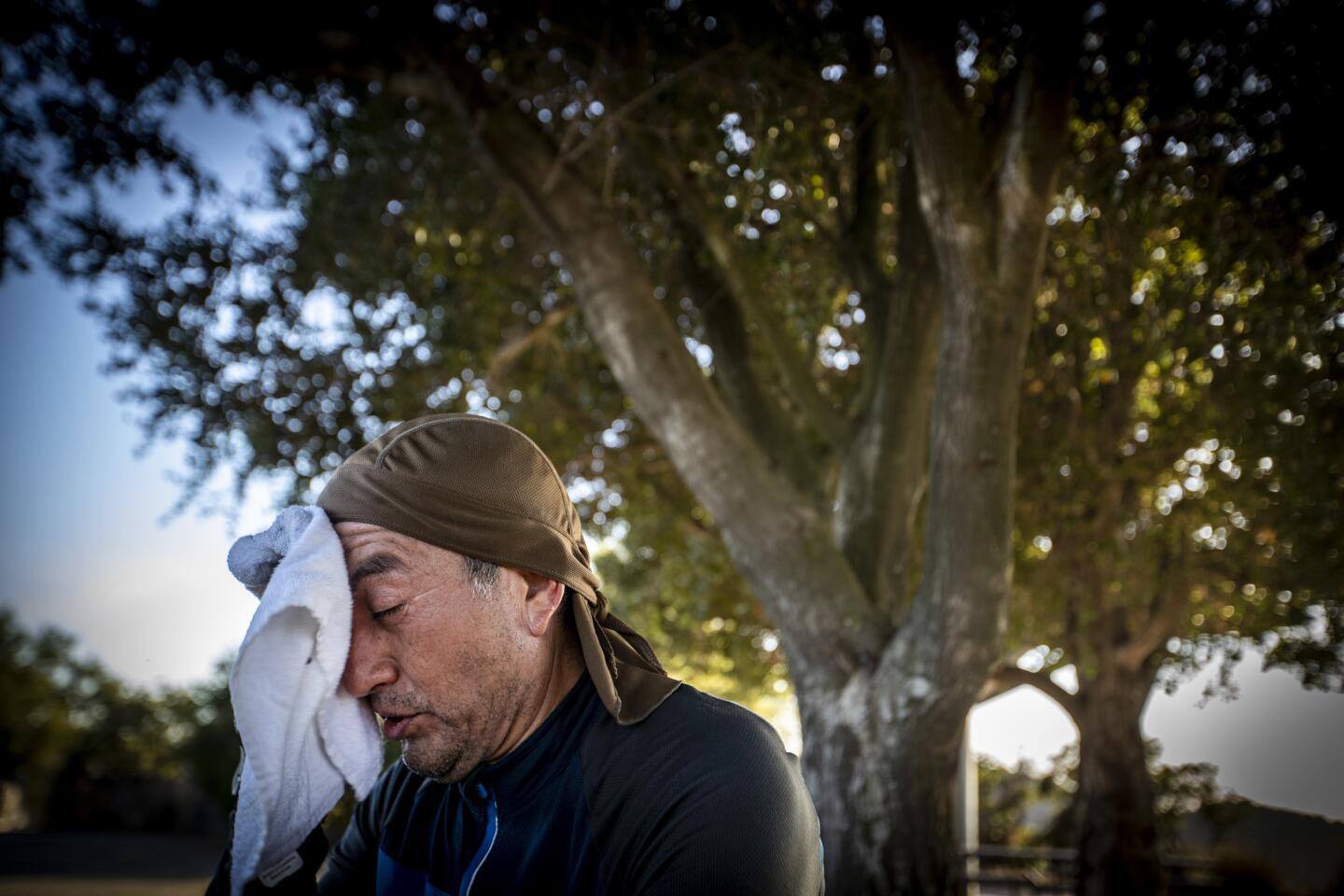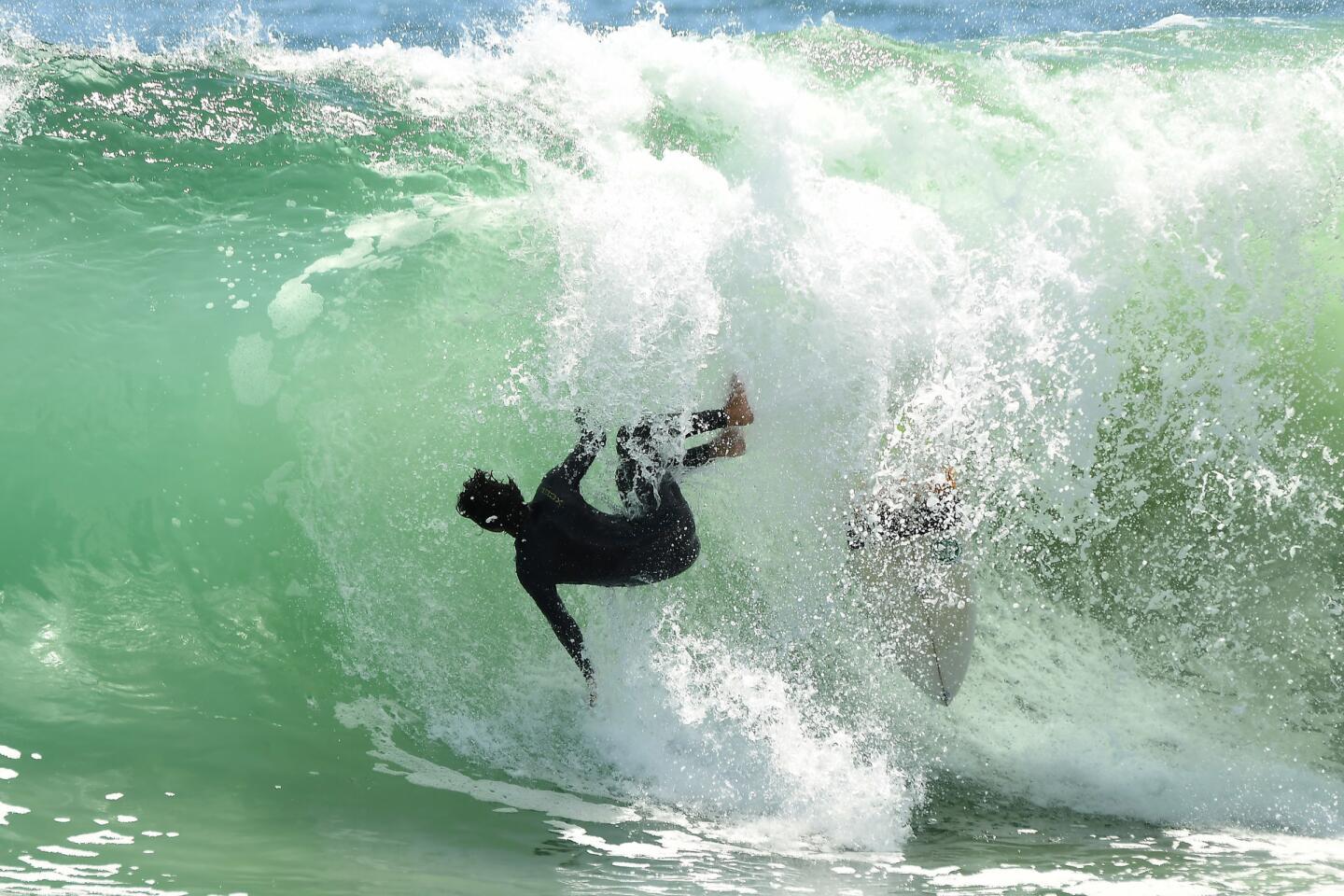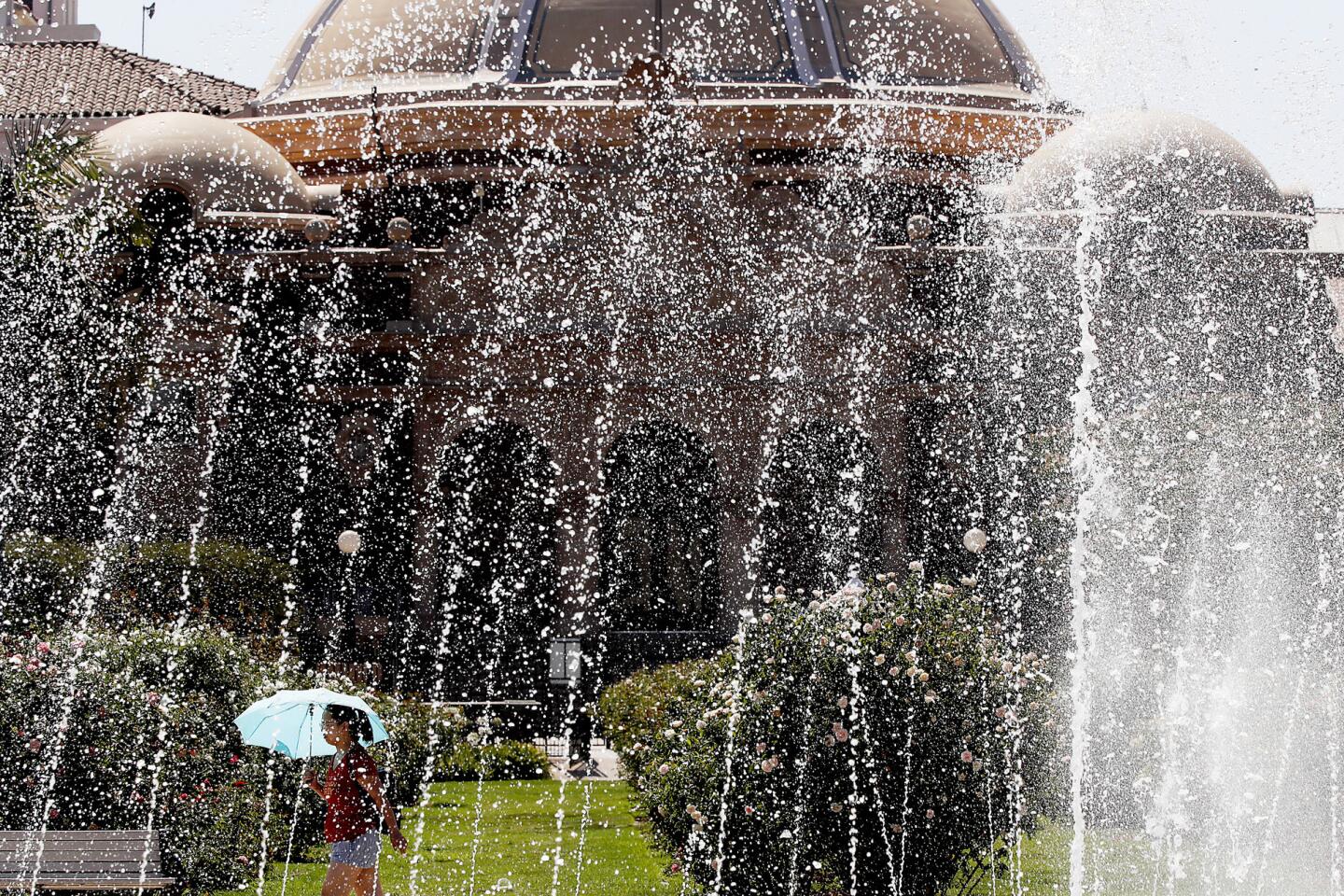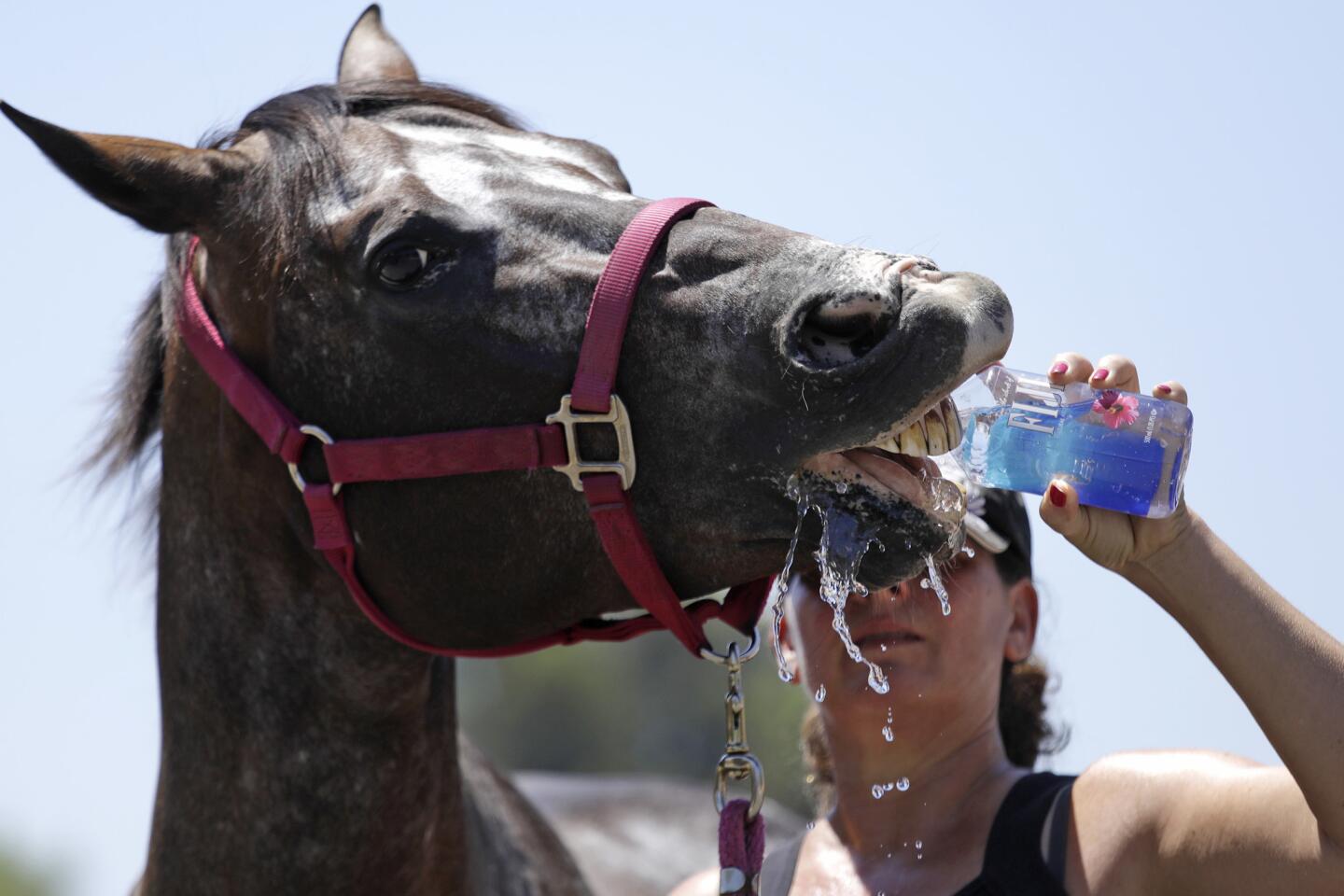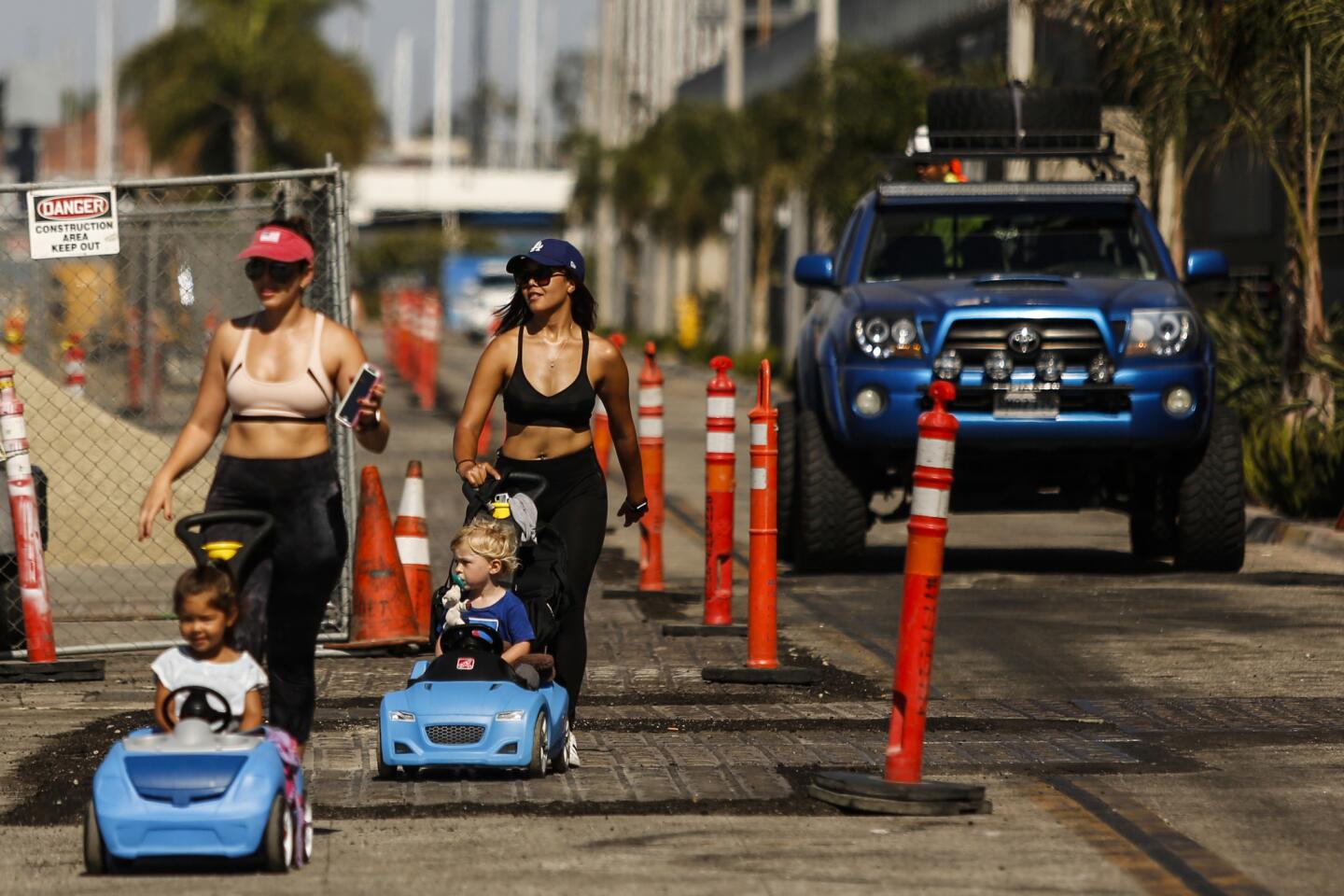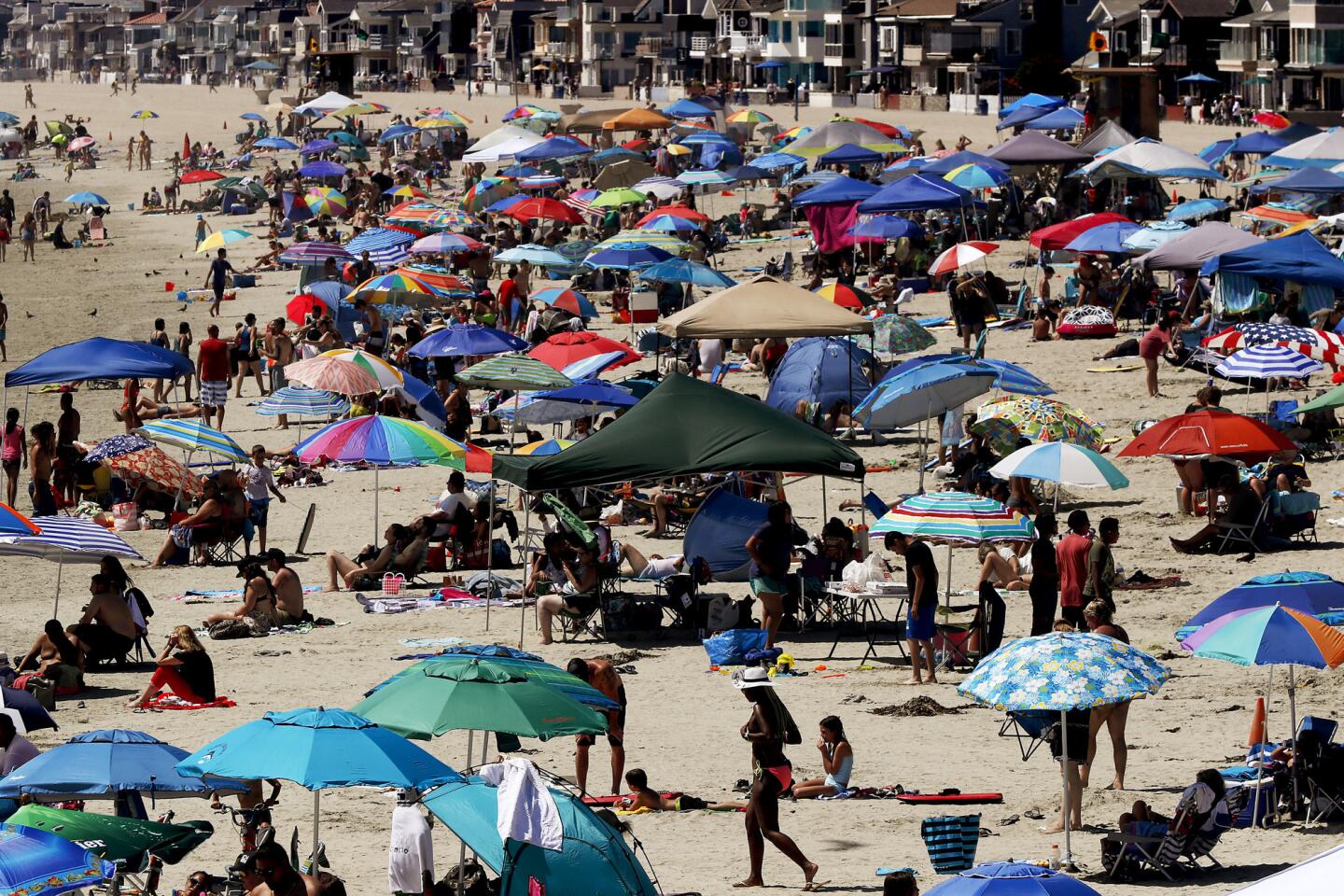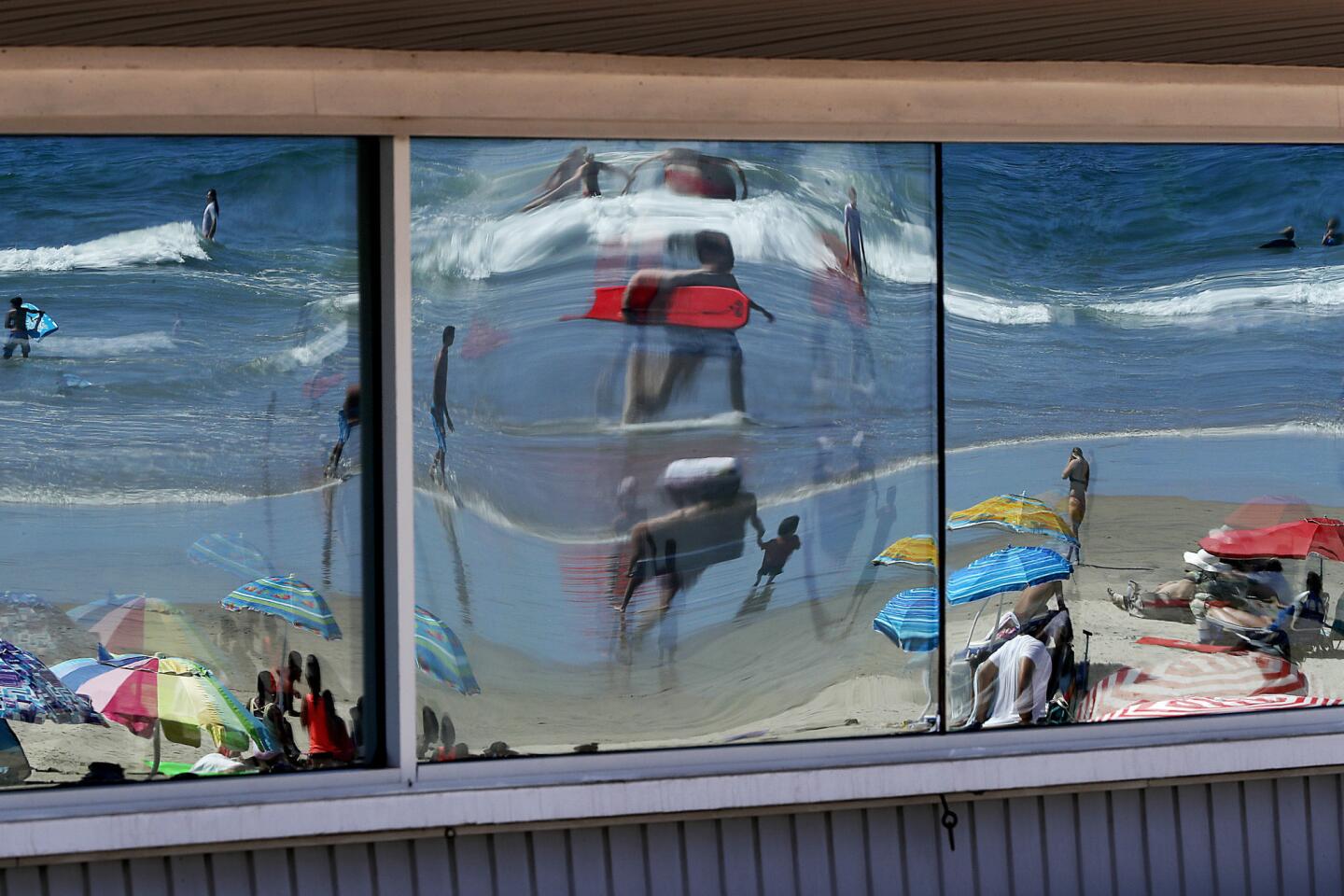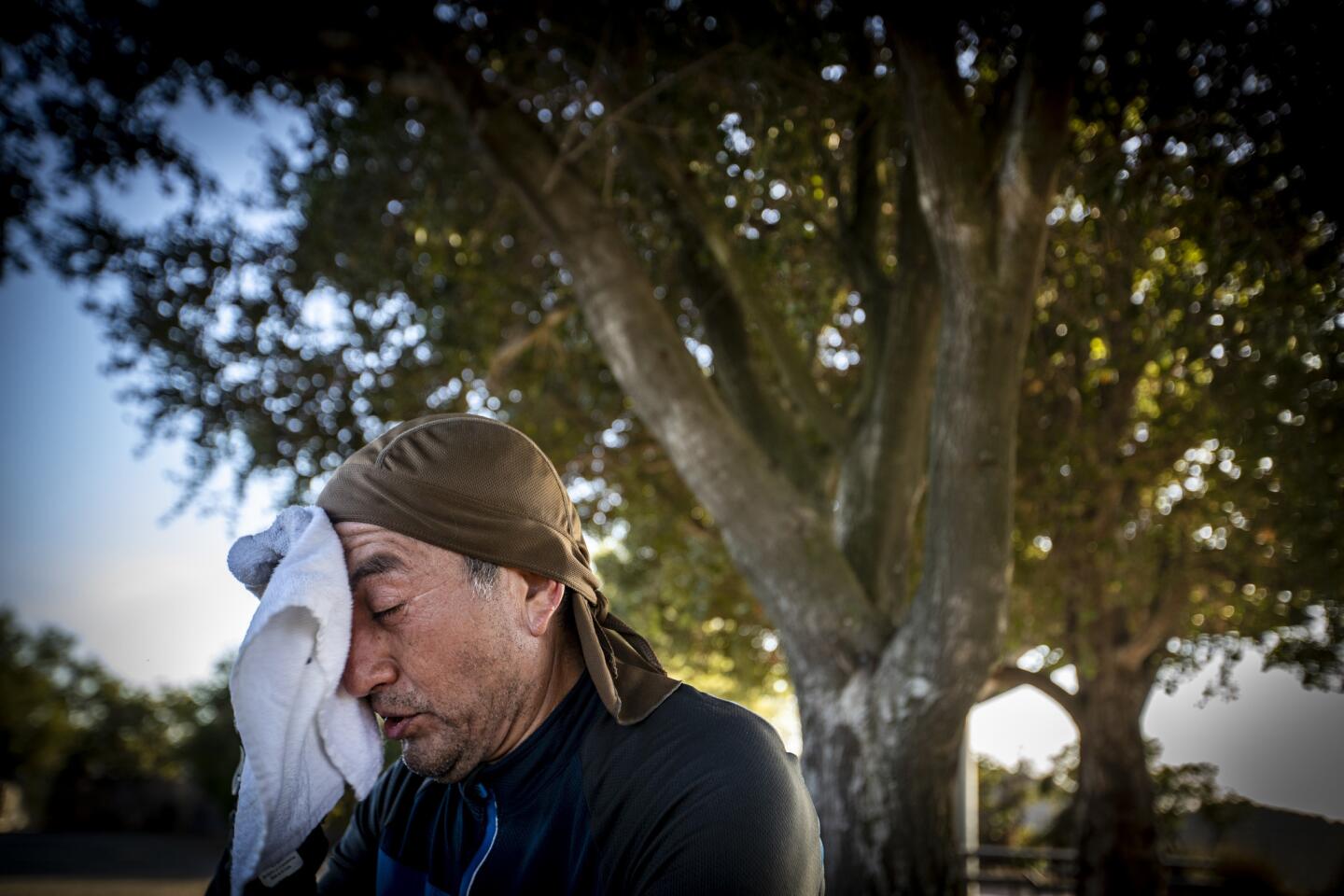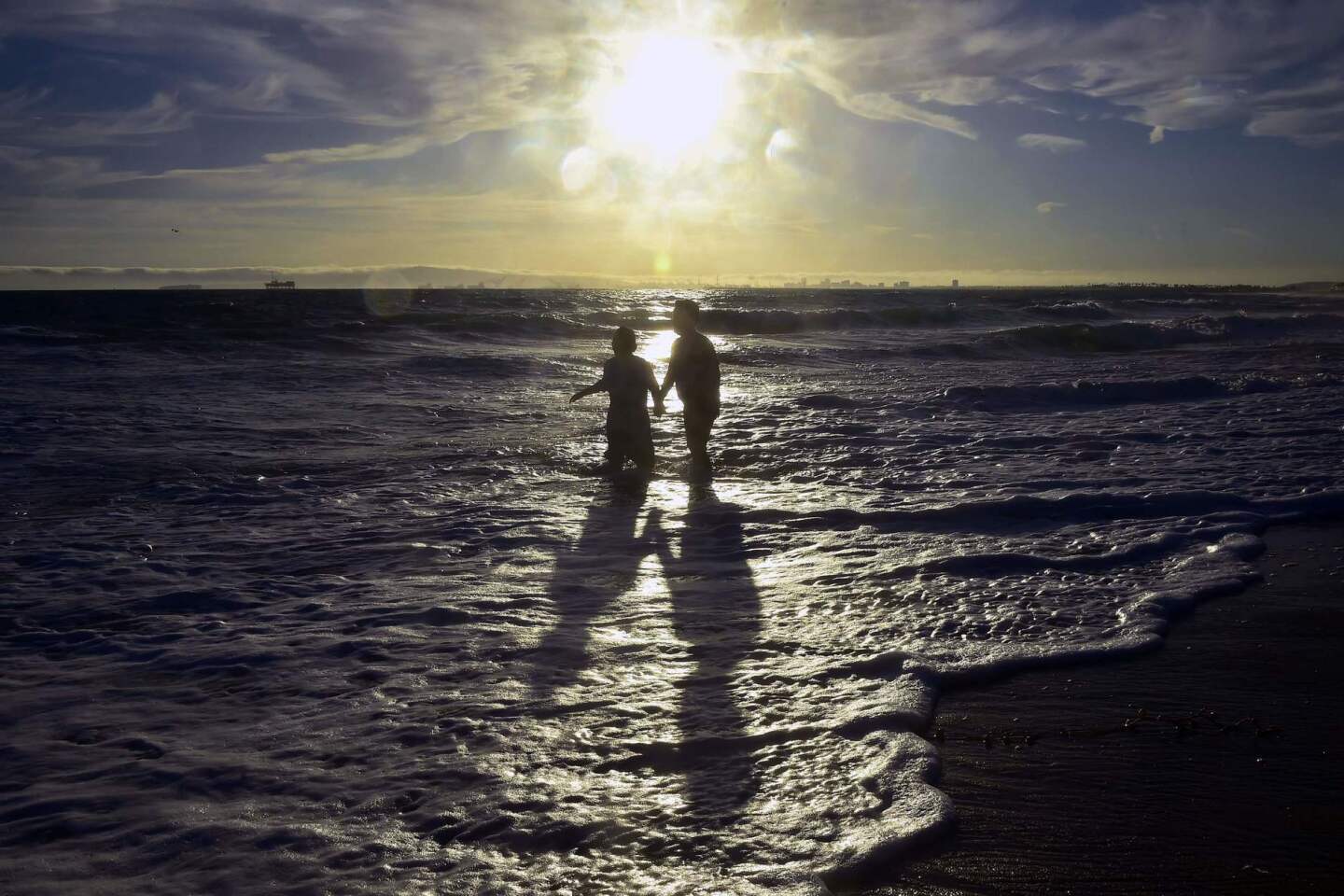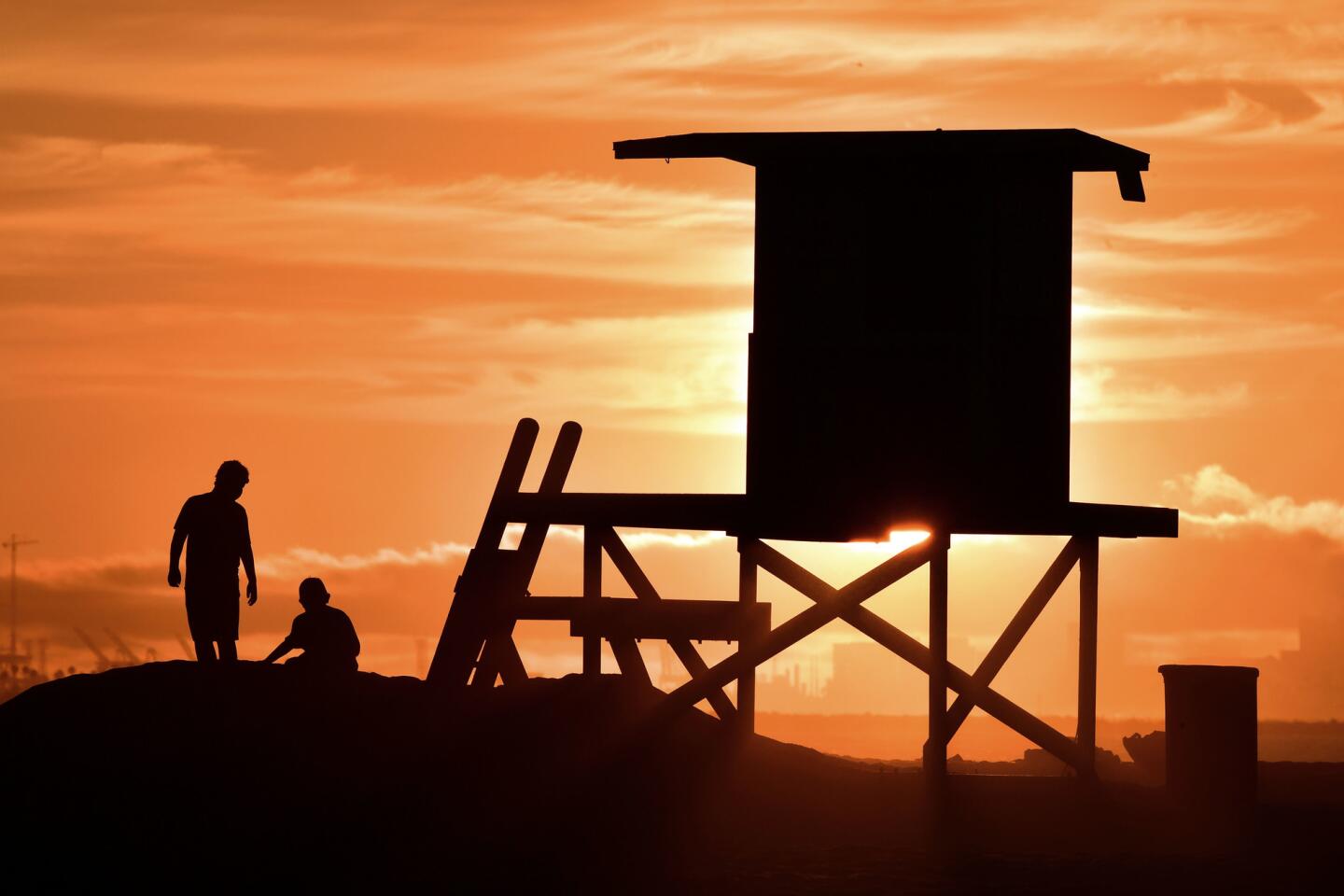Many parts of Southern California broke heat records for July
- Share via
Searing temperatures plagued many parts of Southern California during the month of July as a massive heat wave set records in Death Valley, Los Angeles, Long Beach and other areas, according to the National Weather Service.
All-time average record highs in July were reported at Long Beach Airport (77.8 degrees), Van Nuys Airport (83.6 degrees), Lancaster Airport (87.2 degrees) and Oxnard (73.1 degrees), according to the National Weather Service.
It was the third warmest July in downtown Los Angeles since records began in 1877, with the average temperature in July reaching 79.9 degrees. The warmest July for that area was in 2006.
It was also the warmest July on record in Fresno. For 26 consecutive days temperatures were above 100 degrees, said Brian Ochs, meteorologist with the National Weather Service in Hanford. Ochs said the previous record was set in 2005 with 22 days in a row of temperatures being maintained above 100 degrees.
Bakersfield also saw broiling temperatures that set records. Ochs said it was the second warmest July on record, with temperatures exceeding the monthly July average by about 6 degrees.
Bakersfield saw 21 days in a row in July of temperatures above 100 degrees — the ninth longest on record. The record was set in 1906 when temperatures exceeded 100 degrees for 50 consecutive days.
Death Valley also set many records.
Toward the end of July, Death Valley had three consecutive days of temperatures reaching 127 degrees, said meteorologist David Sweet with the National Weather Service in Oxnard.
The average temperature for the month of July in Death Valley was 108 degrees, which is the warmest on record. Before that, the record was set in 2017 with temperatures reaching 107.4 degrees.
The blazing heat is the result of persistent high pressure over the western U.S., meteorologists said.
“It’s basically a stable dry air mass that develops and it means stable, hotter and dry,” Ochs said. “We knew it was going to be a warmer-than-average July but not necessary to the degree that it was so, so I’d say it’s a little bit of a surprise but not entirely unexpected.”
Follow me on Twitter @melissaetehad
More to Read
Sign up for Essential California
The most important California stories and recommendations in your inbox every morning.
You may occasionally receive promotional content from the Los Angeles Times.
